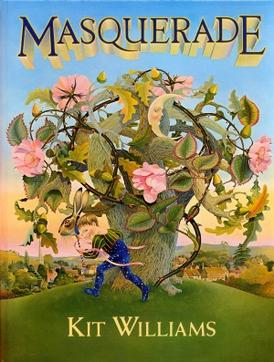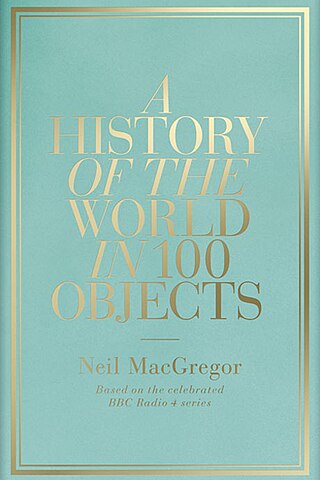
Have I Got News for You (HIGNFY) is a British television panel show, produced by Hat Trick Productions for the BBC, which premiered on 28 September 1990.
My Word! is a British radio quiz panel game broadcast by the BBC on the Home Service (1956–67) and Radio 4 (1967–88). It was created by Edward J. Mason and Tony Shryane, and featured the humorous writers Frank Muir and Denis Norden, known in Britain for the series Take It From Here. The show was piloted in June 1956 on the Midland Home Service and broadcast as a series on the national Home Service network from 1 January 1957. The series also ran on BBC Television for one series from July–September 1960.

Never Mind the Buzzcocks is a British comedy panel game show with a pop music theme. It has aired on Sky Max since September 2021, having originally aired between November 1996 and January 2015 on BBC Two. The original series was first hosted by Mark Lamarr, then by Simon Amstell, and later by a number of guest presenters, with Rhod Gilbert hosting the final series. It first starred Phill Jupitus and Sean Hughes as team captains, with Hughes being replaced by Bill Bailey from the eleventh series, and Bailey replaced by Noel Fielding for some of series 21 and from series 23 onward. The show returned six years later, now hosted by Greg Davies, with Daisy May Cooper as the new captain and Fielding returning as a captain. The show is produced by Talkback. The title plays on the names of the Sex Pistols album Never Mind the Bollocks, Here's the Sex Pistols and the band Buzzcocks.

The News Quiz is a British topical panel game broadcast on BBC Radio 4, first broadcast in 1977. The show, created by John Lloyd from an idea by Nicholas Parsons, has seen several hosts, including Barry Norman, Barry Took, Simon Hoggart, Sandi Toksvig, and Miles Jupp. Andy Zaltzman was announced as the permanent host after series 103. The show involves four panellists, often comedians or journalists, who answer questions about events of the previous week, often leading to humorous and satirical exchanges. The show was adapted for television in 1981 and has also inspired other shows.

QI is a British comedy panel game quiz show for television created and co-produced by John Lloyd. The series currently airs on BBC Two and is presented by Sandi Toksvig. It features permanent panellist Alan Davies and three guest panellists per episode; the panellists are mostly comedians. The series was presented by Stephen Fry from its beginning in 2003 until 2016.
Round Britain Quiz is a panel game that has been broadcast on BBC Radio since 1947, making it the oldest quiz still broadcast on British radio. It was based on a format called Transatlantic Quiz, a contest between American and British teams on which Alistair Cooke was an early participant.

Treasure Hunt is a UK game show, based on the format of the French show La Chasse au Trésor, created by Jacques Antoine. It appeared on Channel 4 between 28 December 1982 and 18 May 1989 and was revived by BBC Two between 16 December 2002 and 2 August 2003.

Question Time is a topical debate programme, typically broadcast on BBC One at 10:45 pm on Thursdays. It is usually repeated on BBC Two and on BBC Parliament later in the week. If there is a Leaders special, it would be broadcast simultaneously on BBC News. Question Time is also available on BBC iPlayer. Fiona Bruce currently chairs the show having succeeded David Dimbleby as presenter in January 2019.

Masquerade is a picture book, written and illustrated by Kit Williams and published in August 1979, that sparked a treasure hunt by including concealed clues to the location of a jewelled golden hare that had been created and hidden somewhere in Britain by Williams. The book became the inspiration for a genre of books known today as armchair treasure hunts.

Any Questions? is a British topical discussion programme "in which a panel of personalities from the worlds of politics, media, and elsewhere are posed questions by the audience".
The Chris Moyles Show is the title given to two differing versions of a radio programme hosted by Chris Moyles, originally broadcast as Radio 1 Breakfast from 5 January 2004 to 14 September 2012, before transferring three years later on 21 September 2015 to the Global Radio-owned commercial radio station Radio X. The show is broadcast between 6:30 and 10:00 each weekday.

Nigel Rees is an English writer and broadcaster, known for devising and hosting the Radio 4 panel game Quote... Unquote (1976–2021) and as the author of more than fifty books, mostly works of reference on language, and humour in language.

The Naked Scientists is a one-hour audience-interactive science radio talk show broadcast live by the BBC nationally on BBC Radio 5 Live, and internationally on ABC Radio National, Australia; it is also distributed globally as a podcast.
A quiz channel is a television channel that focuses on phone-in quizzes. The quizzes usually focus on puzzles, such as filling in blanks, identifying subjects, or other forms of word puzzles. The channels make money by encouraging viewers to call a toll phone number for the chance to play.

Keith Fordyce Marriott was an English disc jockey and presenter on British radio and television. He was both the first presenter of the ITV television pop music programme Thank Your Lucky Stars in 1961 and of the youth-orientated magazine show Ready Steady Go! on Associated-Rediffusion from 1963 to 1965. Fordyce was a stalwart of both BBC Radio and Radio Luxembourg for many years, being co-host of the BBC Light Programme's Sunday morning show Easy Beat until 1967 and was the first presenter of BBC Radio 2's Sounds of the 60s series from 1983 to 1986.
Paul Devereux is a British author, researcher, lecturer, broadcaster, artist and photographer based in the UK. Devereux is a co-founder and the managing editor of the academic publication Time & Mind – the Journal of Archaeology, Consciousness and Culture, a research associate with the Royal College of Art (2007–2013), and a Research Fellow with the International Consciousness Research Laboratories (ICRL) group at Princeton University.
The Audience Appreciation Index (AI) is an indicator measured from 0 to 100 of the public's appreciation for a television or radio programme, or broadcast service, in the United Kingdom.

A History of the World in 100 Objects was a joint project of BBC Radio 4 and the British Museum, consisting of a 100-part radio series written and presented by British Museum director Neil MacGregor. In 15-minute presentations broadcast on weekdays on Radio 4, MacGregor used objects of ancient art, industry, technology and arms, all of which are in the British Museum's collections, as an introduction to parts of human history. The series, four years in planning, began on 18 January 2010 and was broadcast over 20 weeks. A book to accompany the series, A History of the World in 100 Objects by Neil MacGregor, was published by Allen Lane on 28 October 2010. The entire series is also available for download along with an audio version of the book for purchase. The British Museum won the 2011 Art Fund Prize for its role in hosting the project.
The Kitchen Cabinet is a BBC Radio 4 programme hosted by Jay Rayner in which members of the public can put questions to a panel of experts about food and cooking.











